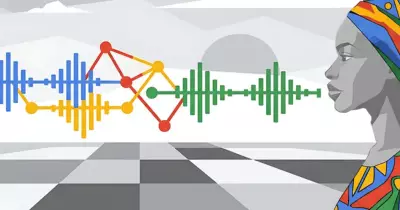
In a fascinating exploration of technology's impact on Nigerian society, new research is shedding light on how Artificial Intelligence is fundamentally reshaping two of the country's most cherished domains: music and religion.
The Digital Transformation of Nigerian Music
AI technology is revolutionizing Nigeria's vibrant music scene in ways previously unimaginable. From Lagos to Port Harcourt, musicians are harnessing AI tools for everything from composition and production to distribution and marketing.
The research highlights several key developments:
- AI-powered music creation tools enabling artists to experiment with new sounds
- Intelligent algorithms that analyze listener preferences to predict hit songs
- Automated mixing and mastering services making professional production accessible
- Local language processing allowing AI to understand and work with indigenous languages
Religious Practices Get a Tech Upgrade
Perhaps more surprisingly, AI is making significant inroads into Nigeria's deeply rooted religious practices. Churches and mosques across the country are beginning to incorporate artificial intelligence in various aspects of worship and community engagement.
The study reveals innovative applications including:
- AI-powered sermon preparation tools that help religious leaders research and organize teachings
- Intelligent systems for managing congregational needs and community outreach
- Virtual reality experiences that recreate significant religious sites and events
- Language translation services making religious content accessible across Nigeria's diverse linguistic landscape
Bridging the Digital Divide
One of the most promising aspects of this technological revolution is its potential to bridge Nigeria's digital divide. As AI tools become more accessible and affordable, they're creating new opportunities for artists and religious leaders in underserved communities.
The research emphasizes that while urban centers like Lagos and Abuja are leading the adoption, rural communities are increasingly benefiting from these technologies through mobile platforms and community technology centers.
Ethical Considerations and Cultural Preservation
As AI continues to permeate these sensitive cultural spheres, the research raises important questions about authenticity, cultural preservation, and ethical implementation. How do we maintain the human touch in music and worship while embracing technological advancement?
The study calls for thoughtful integration of AI that respects Nigeria's rich cultural heritage while leveraging technology's benefits. It suggests that the most successful implementations will be those that augment rather than replace human creativity and spiritual connection.
This groundbreaking research ultimately paints a picture of a Nigeria at the forefront of technological adaptation, where ancient traditions and cutting-edge innovation are finding surprising and productive common ground.





